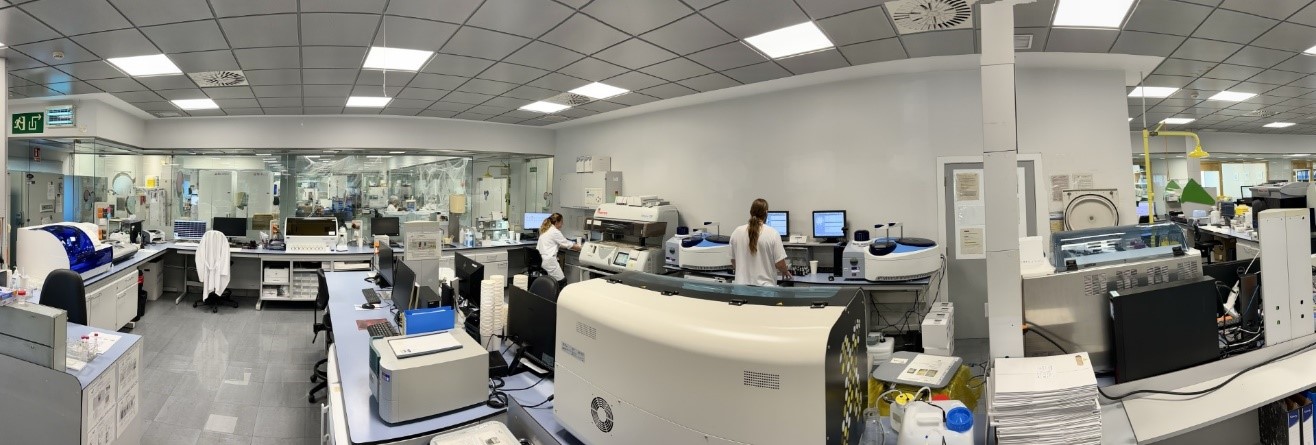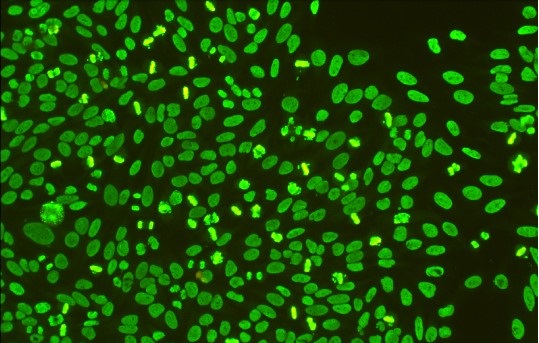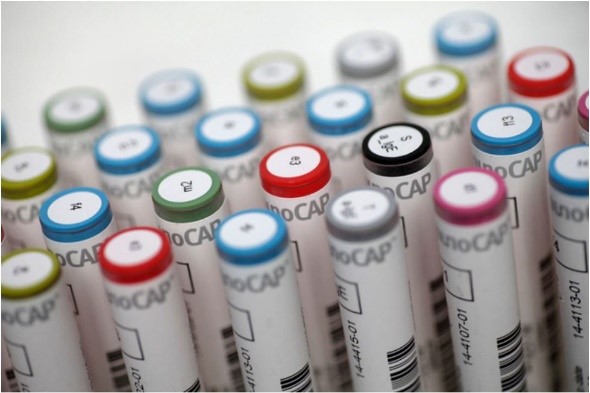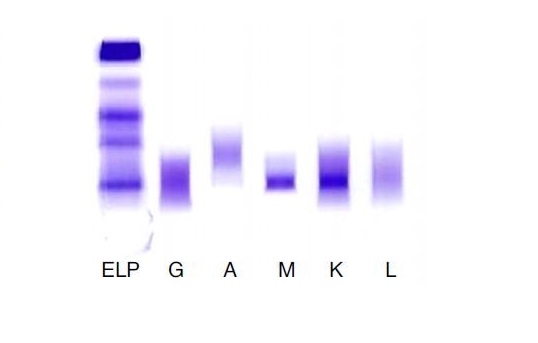Immunology
Immunology area has 3 main sections: autoimmunity, immunochemistry and allergy. We work with state-of-the-art technology and in a multidisciplinary way to offer results that contribute to the optimal clinical management of patients.
Immunology area has 3 main sections: autoimmunity, immunochemistry and allergy. We work with state-of-the-art technology and in a multidisciplinary way to offer results that contribute to the optimal clinical management of patients.



The objective of this section is the diagnosis of both systemic and organ-specific autoimmune diseases, using indirect immunofluorescence, chemiluminescence, immunoblot and ELISA techniques. The area has state-of-the-art analyzers for these techniques and an automated reading microscope that takes photographs of all indirect immunofluorescence substrates so that they can be reviewed by the medical staff. These tools can be used to identify pathologies such as lupus, rheumatoid arthritis or Sjögren's syndrome, as well as to diagnose celiac disease.
Recently, chemiluminescence monitoring of biological therapies has been incorporated to optimize treatment in patients with chronic pathologies.

Specific IgE and IgG tests, tryptase measurement and molecular allergy tests are performed to identify substances that trigger allergic reactions, helping to personalize the treatment of patients with respiratory, skin or food allergies.

Proteinograms and typing of monoclonal components are performed for the study of monoclonal gammopathies, as well as detection of oligoclonal bands in CSF for the diagnosis of multiple sclerosis. Capillary electrophoresis, immunofixation and isoelectrofocusing analyzers are available to perform the different techniques. The Hydrashift technique is also available to eliminate the interference caused by some biological therapies in immunofixation. Specific protein analysis is performed using turbidimetry equipment, cryoglobulins are identified and calprotectin is quantified in feces. Finally, in the Immunology area, the determination of Alzheimer's biomarkers in CSF and plasma is performed using a chemiluminescence equipment.